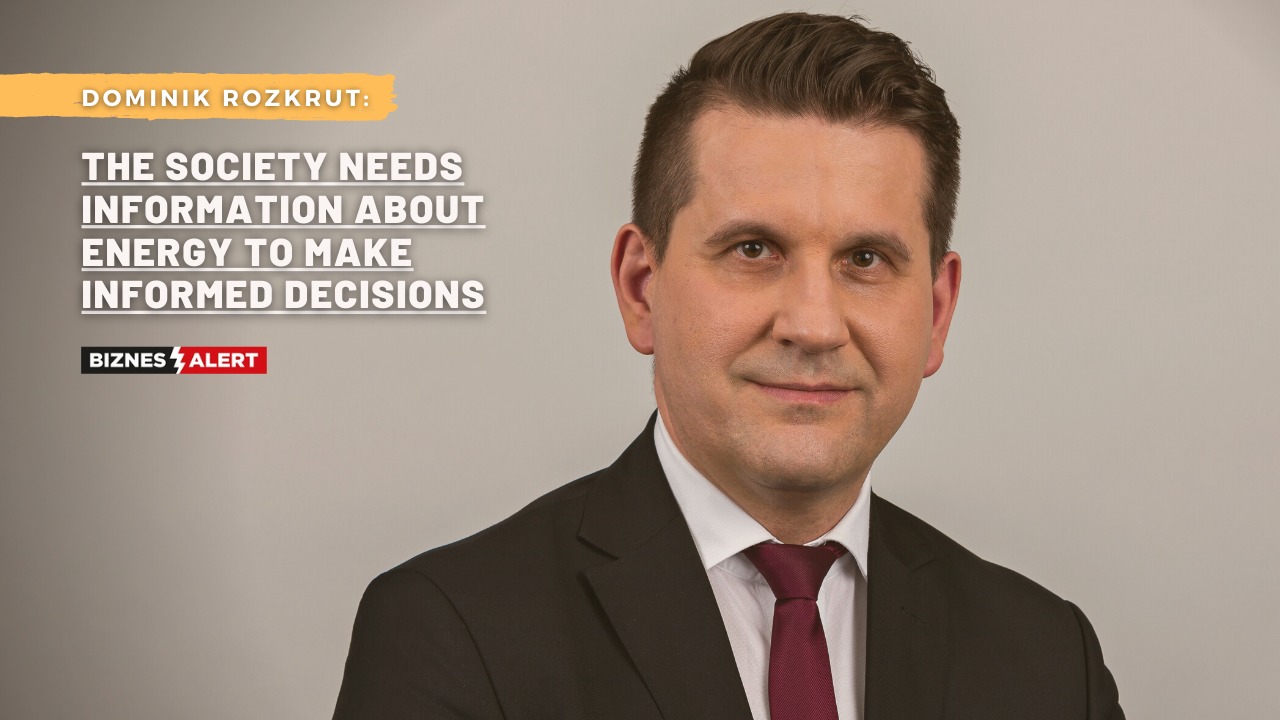The public needs to be knowledgeable to make informed decisions. The current energy situation shows how important data on the context of the energy and gas price increases or the impact of climate policy are, allowing us to understand these processes, says Dominik Rozkrut, the president of Statistics Poland in an interview with BiznesAlert.pl.
BiznesAlert.pl: Is statistical information a public good?
Dominik Rozkrut: Absolutely. In this way, we define information derived from official statistics, which by definition in Poland, are public. Statistics Poland is an essential element in this respect, in addition to the National Bank of Poland and the administrative bodies producing official data. Our data make it possible to correctly assess a given situation to make strategic decision about the future. The public must have access to data in order to make appropriate decisions on strategies, investments.
Is the information you provide payable?
It is a public good financed by the society from the state budget, bankrolled by taxes. Our data is publicly available and published as result data. If someone needs a specific calculation that goes beyond the predefined result data, then we can prepare it for a fee, because then it is not included in the budget. We are trying to expand access to statistical information through new technological tools.
The energy industry suffers from a lack of information. Is access to such information limited?
We are not in a position to assess the demand for information ourselves. We are open to cooperation with various stakeholders and take initiatives to provide the necessary information to those who are interested. However, due to some historical circumstances we are not the only administrator of this data.
Is this the case across the European Union?
Databases from the energy sector can be found on the website of the International Energy Agency. It provides information about Poland and other countries. There is also the European Statistical System and Eurostat, which collects information on energy, and at the beginning of this year the first data on hydrogen and biofuels will be made available. Statistics Poland is part of the European Statistical System, which means it shares with Eurostat all data on energy that are at its disposal, or refers it to other information sources such as the Ministry of Climate and Environment or the Energy Market Agency.
Are data from outside Statistics Poland free?
As a rule, generic data are presented free of charge, but it is difficult for us to be responsible for other data producers. We publish annual energy information in our databases, also in a special folder. We are in talks with the Climate Ministry about sharing their data via the API, which we are already doing with our own information, so that they become more accessible. We also want stakeholders to indicate on a regular basis what data they are missing, and we will then have a basis for seeking them. Energy is just one of the many areas that we deal with, and the status quo often results from a compromise with other stakeholders and the resources we have for research. If, on the other hand, the entity is interested in data that are not directly available from the result data, we make additional calculations for a fee.
Energy sector analysts complain about the lack of open data on energy in Poland.
We are seeking a dialogue to identify specific needs. The pandemic somewhat limits our efforts in this regard (in terms of face-to-face meetings). However, we are always open to dialogue on the development of a system for measuring energy phenomena in order to provide the necessary data in the public interest.
Who decides what information should be publicly available?
Statistics Poland together with the Statistical Council, develops a Statistical Research Programme for Public Statistics, which is then approved by the council of ministers via a regulation. So far, we have had a dialogue mainly with ministries, but we want to be and we are open to representatives of various communities in the civic society, including the needs of experts and industry journalists. They are often the best source of knowledge about what information is missing about the energy market.
If the energy sector asked for data, would you be able to share it?
There is nothing we care about more than a signal, which would become an argument in a discussion. The budget’s our limit. The society needs full information to make informed decisions on its affairs. The energy situation today shows how important data are in terms of increases in energy or gas prices or the impact of climate policy to understand these processes. On the other hand, we must find a solution that won’t put a strain on our respondents.
Is it physically possible to collect transparent information about the energy sector in Poland?
Of course it is. It’s a matter of will and commitment, and that’s what we’re trying to do. New possibilities are emerging, such as energy meter readings collected in all apartments in Poland on the occasion of the census. We are working in the European Union to get more access to private sources, for example from operators in the energy sector. If we were able to use this kind of data on an ongoing basis, we could develop and make available much more information about the energy market.
Interview by Wojciech Jakóbik

 PL
PL EN
EN





